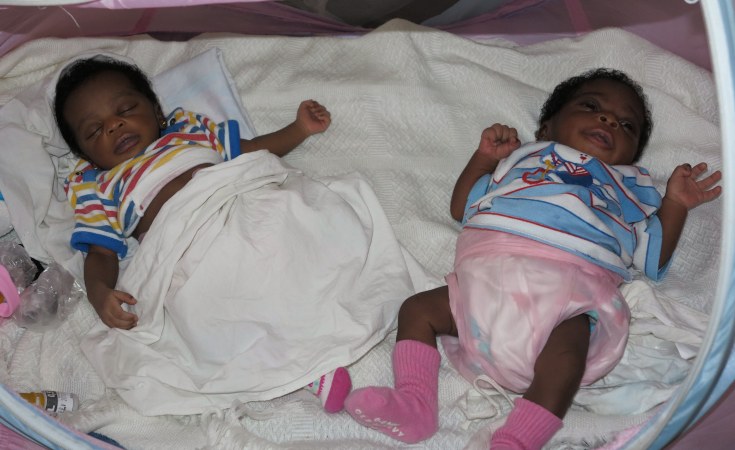Johannesburg — "Eight thousand newborn babies will die during this conference."
That statement by Karen Bell, facilitator and journalist at the first Global Newborn Health Conference last week, is still ringing in my ears. The statistics for global newborn deaths are shocking.
Let me rephrase that - what the statistics mean is shocking. Numbers have a way of making my eyes glaze over - too many years of updating death tolls as a media professional will do that to you. But this time, a statistic hit home. That's 8,000 families, 8,000 mothers, 8,000 fathers who are mourning their babies.
It's not just a number to me and my family. Five years ago I found out my son would be born more than a month early, I was given a corticosteroid to boost his lung growth and he spent about a month in the neo-natal ICU, where the nurses encouraged kangaroo mothercare.
At the Johannesburg conference, participants gathered to make a plan to make sure that more babies and mothers receive the kind of health care I was able to get in Cape Town, where my son was born.
In her welcome speech to the assembly, humanitarian campaigner Graca Machel told of an encounter with a mother in a refugee camp. The woman was cradling her newborn and as their eyes met, "we were both aware that the child would not survive - it was too late".
"I will never forget those eyes... no mother should have to watch her newborn suffer and die in that way," said Machel, the wife of former president Nelson Mandela and the newly appointed chairperson of the Partnership for Maternal, Newborn & Child Health.
The challenge of keeping babies alive in their first week of birth has been "hidden", mostly due to a lack of data around how serious the problem is, lack of co-ordination between agencies working on the issue, and an expectation that the solutions would be expensive and that therefore little could be done in developing countries.
But for more than a decade, simple actions such as kangaroo mothercare and corticosteroid use, which has been available since the 1970s, has meant "slow and stubborn progress", according to Gary Darmstadt, head of the Family Health Division at the Bill & Melinda Gates Foundation. In his conference keynote, Darmstadt stressed a need for a "shift in the way we're working".
"Why are more babies dying in sub-Saharan Africa? Some countries are not taking advantage of interventions - they're sputtering through the introductory phase. South Africa has embraced the interventions and the results reflect this," Darmstadt said.
But there are success stories.
South Africa, Rwanda and Malawi are held up as examples of countries heading in the right direction, and at the right speed, to turn around statistics such as 52 million women giving birth outside of health facilities.
As South African Health Minister Dr. Aaron Motsoaledi said: "We still have time to close the gap on newborn deaths - a full thousand days (before the expiry of the 2015 Millennium Development Goals) to improve maternal and newborn health."


